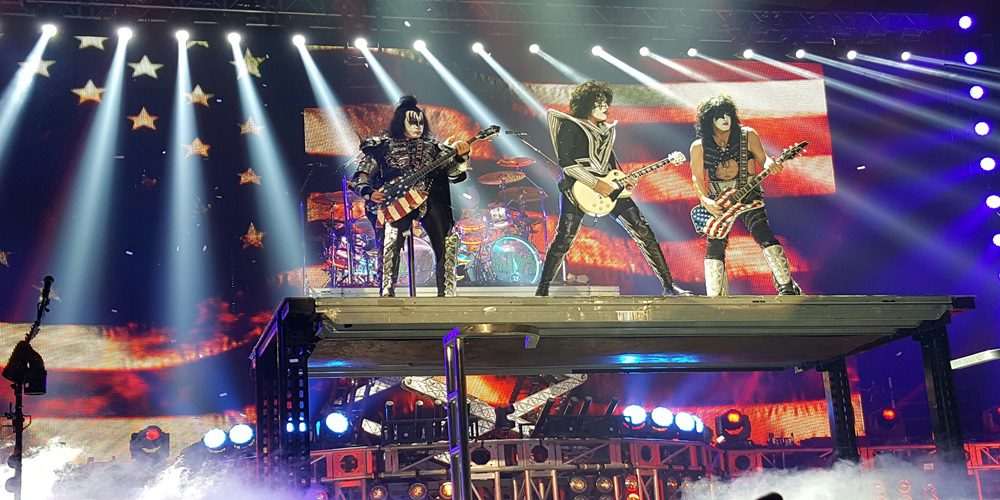Step into the vibrant world of pop culture, where trends are constantly evolving and entertainment never sleeps. From music and movies to fashion and social media, there is always something new and exciting happening in this ever-changing landscape. Join us as we dive deep into the top entertainment trends that are shaping our cultural zeitgeist and get ready to be captivated by what’s next in the world of pop culture!
Introduction: The Impact of Pop Culture on Society
Pop culture, short for popular culture, refers to the cultural elements that are prevalent in society and are widely accepted by the masses. These can include music, movies, television shows, fashion trends, social media influence, and celebrity news. In today’s digital age where information is constantly shared and consumed at a rapid pace, pop culture has become more influential than ever before.
The impact of pop culture on society is undeniable. It shapes our beliefs, behaviors, lifestyles, and even influences our language and attitudes towards certain issues. Pop culture is not just a form of entertainment; it has the power to reflect societal values and bring about significant changes in attitudes.
The Rise of Streaming Services: How It’s Changing the Entertainment Industry
The entertainment industry has been constantly evolving, and one of the biggest changes that has taken place in recent years is the rise of streaming services. With the increasing popularity of platforms like Netflix, Hulu, and Disney+, traditional cable TV is quickly becoming a thing of the past. This shift has had a major impact on how we consume media and has changed the landscape of the entertainment industry.
One of the key factors driving this rise in streaming services is convenience. Gone are the days where we have to plan our schedules around TV show timings or rush to catch our favorite movie during its limited playtime at theaters. Now, with just a few clicks or taps on our devices, we can access a vast library of movies and TV shows anytime, anywhere. This level of convenience has made streaming services extremely popular among audiences, particularly among younger generations who are more accustomed to consuming media through digital platforms.
Another significant factor contributing to the success of streaming services is their original content. These platforms have been investing heavily in producing high-quality original programming in order to attract and retain subscribers. Shows like Stranger Things, The Handmaid’s Tale, and The Crown have become cultural phenomena thanks to their binge-worthy style and gripping storytelling. This influx of new and exciting content not only appeals to viewers but also challenges traditional broadcast networks to up their game.
Additionally, with streaming services offering ad-free viewing experiences for a reasonable subscription fee, they present a more attractive option than traditional cable TV which often includes expensive monthly bills and interruptive commercials. This ability to tailor your viewing experience without interruptions enables viewers to fully immerse themselves in their chosen content.
Moreover, streaming services allow for greater diversity in terms of representation on screen. With less pressure from advertisers or network executives dictating what can be shown on air, these platforms are able to produce content that reflects various cultures, identities, and perspectives that may not have been given as much space before.
Social Media and Influencers: The New Celebrity Culture
Social media has completely revolutionized the concept of celebrity culture. Long gone are the days when celebrities were only found on TV screens or in magazines. With the rise of social media platforms like Instagram, Twitter, and TikTok, the definition of a “celebrity” has broadened to include influencers, who have gained immense popularity and influence through their online presence.
Influencers are individuals who have built a large following on social media by creating content that speaks to their target audience. They can range from fashion bloggers and fitness gurus to makeup artists and lifestyle coaches. These influencers have become a driving force in shaping consumer behavior, especially amongst younger generations. As they showcase products and promote brands on their social media pages, they hold a significant level of credibility with their followers, therefore making them effective brand ambassadors.
The connection between social media and traditional celebrity culture is undeniable as well. Many celebrities utilize social media platforms to connect with their fans directly. Often referred to as “verified accounts,” these celebrities use social media not just for promotional purposes but also for sharing personal insights into their lives. This authenticity has made it easier for fans to feel connected to their favorite stars beyond just admiring them from afar.
One major difference between traditional celebrities and influencers is that influencers do not usually possess any particular talent or skill that sets them apart from others. But what makes them stand out is their ability to create compelling content that resonates with audiences worldwide. With eye-catching visuals, relatable captions, and viral challenges, influencers have mastered the art of capturing people’s attention and keeping them engaged.
As traditional media outlets struggle to keep up with digital advancements in entertainment consumption patterns, streaming services like Netflix and YouTube have stepped up as providers of original content featuring both traditional celebrities and influencers alike.
Moreover, luxury brands have recognized the power of influencer collaborations in attracting younger consumers who no longer rely solely on advertising campaigns for brand recommendations. In fact, many fashion and beauty brands have completely shifted their marketing strategies to focus solely on influencer partnerships.
Nostalgia and Reboots: What’s Old is New Again in Pop Culture
Nostalgia and reboots have become significant trends in pop culture in recent years. From classic TV shows being revived to iconic movies getting a modern makeover, it seems like what’s old is new again in the entertainment industry. This phenomenon has sparked debates among fans and critics alike, with some praising the return of beloved characters and storylines while others criticizing it as a lack of originality.
So why are nostalgia and reboots so prevalent in pop culture? One reason could be that they tap into our innate desire for familiarity and comfort. As humans, we tend to associate certain memories or experiences with feelings of happiness and warmth. Bringing back familiar characters or reviving storylines from our childhood can evoke those same emotions, creating a sense of nostalgia.
Another factor driving this trend is the increasing accessibility of media through streaming platforms and social media. With the rise of on-demand services like Netflix, audiences now have easy access to past TV shows and movies that they may have missed out on when they first aired. This allows them to discover or rediscover content from previous decades, leading to a renewed interest in these properties.
Moreover, technology has advanced significantly over the years, allowing for improved special effects and production quality. It has made it possible to reimagine classic stories or worlds in a more visually stunning way than before. For example, Disney’s live-action remakes of their animated classics have received both praise and criticism for their updated visuals while staying true to the original stories.
However, while nostalgia-driven reboots can be successful at the box office or generate buzz on social media, they often face backlash for not living up to their predecessors’ expectations. Fans may feel disappointed when their beloved characters don’t receive proper treatment or when new versions stray too far from the source material.
Despite these criticisms, nostalgia-driven content continues to thrive because it appeals to both older generations who grew up with these properties and younger audiences who are now exposed to them. It also presents a business opportunity for studios to capitalize on existing fan bases and potentially attract new ones.
Diversity and Representation in Entertainment: Why It Matters
Diversity and representation in entertainment have been hot topics in recent years, and for good reason. The media we consume, whether it be through TV shows, movies, music, or books, is a reflection of our society. It has the power to shape our perceptions and beliefs about different cultures, genders, sexual orientations, and more.
One of the key reasons why diversity and representation matter in entertainment is because it allows marginalized groups to see themselves accurately portrayed on screen or in literature. This can have a profound impact on their self-esteem and sense of belonging. For too long, mainstream media has predominantly featured white, cisgendered, able-bodied individuals as the standard for beauty and success. This narrow depiction not only excludes people from diverse backgrounds but also perpetuates harmful stereotypes.
By including diverse characters and storylines in entertainment, it broadens our understanding of different cultures and breaks down stereotypes. This is especially important for younger audiences who are still developing their perceptions of the world around them. When they see positive representations of diverse identities on screen or in books, it normalizes these identities and promotes acceptance and inclusivity.
Furthermore, diversity behind the scenes is just as crucial as on-screen representation. Having writers, directors, producers, actors from various backgrounds helps bring authentic perspectives to storytelling that may otherwise be overlooked by a homogenous group. When people from diverse communities are involved in the creative process behind popular media forms like movies or TV shows, it allows for more accurate portrayals that resonate with viewers from all backgrounds.
Trends to Watch Out For in 2024 and Beyond
As we enter a new decade, the world of entertainment is constantly evolving and changing. With the rise of technology and social media, it’s no surprise that there are always new trends emerging in the industry. As we look ahead to 2024 and beyond, here are some key trends to watch out for in the world of pop culture.
1. Virtual Reality Gaming: While virtual reality gaming has been around for quite some time now, it is predicted to become even more mainstream in the coming years. With advancements in technology, virtual reality will continue to offer immersive and interactive experiences for gamers, making it a top trend to watch out for.
2. Online Streaming Services Dominating: The rise of online streaming services such as Netflix, Hulu, and Disney+ has completely disrupted traditional TV viewing habits. In 2024 and beyond, these platforms are expected to dominate even further with original content production increasing and a decline in cable subscriptions.
3. Diversity in Media Representation: There has been a growing demand for diversity and inclusion in media representation over recent years, with audiences calling for more accurate portrayals of different cultures, races, genders, sexualities etc. As we move forward into 2024 and beyond, this trend is only set to continue as people seek out diverse stories from all corners of the globe.
4. The Power of Influencers: Social media influencers have become an integral part of today’s popular culture landscape. With their large following on various platforms such as Instagram and TikTok comes significant influence on consumer behavior – particularly among younger generations. Brands will continue to tap into influencers’ power through collaborations and endorsements in order to reach their target audience.
Conclusion
As we continue to embrace the ever-changing landscape of pop culture, it’s important to keep an eye on the latest entertainment trends. From viral TikTok challenges to groundbreaking streaming services, these are just a few examples that demonstrate how pop culture continues to evolve and shape our society. Whether you’re a lover of music, movies, or social media, there will always be something new and exciting on the horizon. So stay up-to-date and get ready for what’s next in the world of pop culture!



































